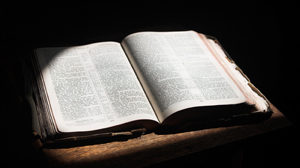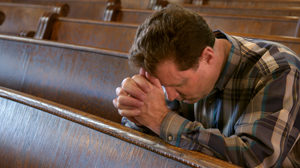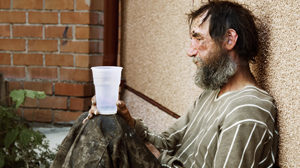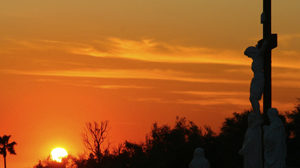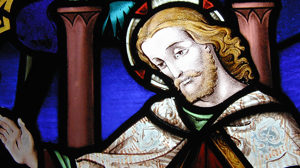Reflection:
I recently traveled to California on business, where there is a severe drought. They live every day aware of every precious drop of water. I watched as people turned on the faucet to wet their hands, turned it off while they soaped up, and turned it on again just long enough to rinse well. In restaurants no one gets a glass of water unless they ask, and if you ask, you’d better drink it. Lawns are more consciously planted with drought-resistant plants or are being converted to rock gardens. Instead of letting water run in the shower or sink as it warms up, people collect it in buckets, using the cold water for other purposes or heating it on the stove for doing dishes.
Even though Lake Michigan currently provides more than enough water in my community, I came home with a new awareness of how much water I use – and waste – every day. I made a resolution to do my part to conserve. Yet the next morning, I stood in my nice hot shower letting the water stream over my body. I knew I needed to turn it off. I knew it was the right thing to do. But it was so comforting. Would just a few more minutes of hydro-therapy hurt? In this and other ways, I am continually reminded that knowing I need/want to do something and actually doing it are two different things.
Jesus says those who hear the word of God and do it are even more blessed his own mother. I understand why. I hear the word of God. I believe. I vow to change my ways to live as a more conscious disciple. But just like my water conservation efforts, it’s so hard to do!
Actually, water conservation and the Gospel are not that far apart. Our water, air, sources of energy, soil – We don’t “deserve” these things. They are gifts, meant to be shared, conserved, and respected. Am I practicing the Gospel when I waste, hoard, or take them for granted? Pope Francis is telling us our current practices are sinful.
Our water systems are all interconnected. Our use, waste, or pollution of the Earth’s precious resources has regional and even global implications. While I can’t directly see my shower taking water out of another’s cup, in some ways it does.
Besides, can I/we afford to assume the levels of water in Lake Michigan will always be replenished, waiting to change until drought hits us as well? Do we close our ears to the needs of people in our country and our world who desperately need this basic of life? Do we pay attention not only to how we use water but the ways in which we contribute to its pollution?
No one can do everything, but I think I will start anew in my efforts at water conservation. Today I posted a water-proof sign in my shower and by every faucet that says “Blessed are they who hear the word of God and do it.” Now every time I turn off the spigot, live with brown spots on the lawn, and yes, end my shower, I will pray for all those who do not have enough of the resources I take for granted. I won’t be perfect. It is, after all, so very hard to do. But I will make a difference, and every drop of water will remind me of my faith and my connection to God’s people everywhere.
In doing so, may I receive and grant blessings, and spread the Gospel by my life.
Amy Florian is a teacher and consultant working in Chicago. For many years she has partnered with the Passionists. Visit Amy’s website: http://www.corgenius.com/.


